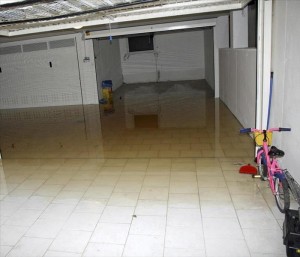
Flooding can ruin your home even after the water recedes.
Whether you have experienced a natural disaster like a hurricane or severe thunderstorm or have had a pipe burst in your home, water isn’t the only thing that you should be worried about. In just 24 hours after water enters your home, you could end up with mold growing in your home. So how do you prevent mold from growing in your home? Read on to find out!
Check out the Situation
The first thing you should do to avoid mold growth is to check out the situation. Once a building is flooded, inspecting the damage is an important step. Before inspecting the damage, make sure you assess the dangers of the situation. If the water is up to the electrical outlets, make sure not to touch it as it could electrocute you. You may have to have the electrical company turn off your power in order to handle the situation. Once the health and safety hazards have been eliminated, it is time to inspect the water, contents, and building. Generally, the rule of thumb is that everything below the water line should be disposed of.
Remove the Flooding
The next step after assessing the flooding damage is to eliminate the water. Use a pump or wet vacuum to remove the water from the basement, crawl space, and duct systems. It is important to remove as much water as possible. Use a dehumidifier to help remove the excess water in the air. You should also remove the soggy, damaged building material in the area. Removing the drywall, paneling, insulation, and other wet materials will help you avoid mold spores from settling on them. We organic materials like building materials tend to draw mold spores to them and encourage them to grow. Once of the wet items have been removed, it is time to clean.
Clean it Up
The next step in this process is to clean up the mess left by the flooding. Use a vacuum to suck up as much of the loose debris and soil as possible. But this should not be done by a simple household vacuum. Use an HEPA or wet/dry vacuum to do the job. If you notice mold in your home from pre-flooding water exposure or if mold has already begun to settle around your home, it is time to call in the professionals. It is important not to try to remove the mold yourself as it could spread around your home. For more information on having mold removed from your home, call Environmental Consulting and Contracting Group today!
Call Environmental Consulting and Contracting Group!
If you or a family member suspects the presence of black mold or any other type of mold in your home, contact the professionals at Environmental Consulting and Contracting Group. With more than 30 years in the mold remediation industry, we have the experience and tools to help you. Contact us at 410-258-3579 or 1-877-591-MOLD (6653).
Be sure to follow us on Facebook, Twitter, and Pinterest!
Tags: Information, Mold Growth

